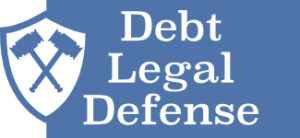Bankruptcy Debt Relief
Are you overwhelmed with debt? When the bills are piling up and there seems to be no way out, many people consider filing for bankruptcy. Bankruptcy is one way to handle your debt, but it’s not the only way.
If you’re considering bankruptcy, contact Benjamin Trotter, Attorney at Law, P.C. to discuss your options. We’d like to sit down with you and assess the situation to help you make the best choice for your current and future finances.
Here’s what you should know about bankruptcy before filing.
Benefits of Filing Bankruptcy
- Some or all of your debt is eliminated. When you file chapter 7 bankruptcy, you won’t have to pay back the debt you accrued. It is eliminated, giving you a fresh start. When you file chapter 13 bankruptcy, you will be required to pay back a portion of your debt over a 3-5 year period.
- Calls and harassment from debt collectors stops. Are you tired of the constant barrage of phone calls and mail reminding you of your debt? Once you file bankruptcy all contact from collection agencies and creditors stops.
- Your future wages are protected. When a collector files a lawsuit against you, there may be a judgement issued that can result in wage garnishment. But filing bankruptcy will prevent this, allowing you full access to your future wages to get back on your feet.
- You can keep most of your possessions. In many cases you will be able to keep most of your belongings after filing bankruptcy. This includes your house, your car, and other possessions.
- Allows you to rebuild your credit. If you already have bad credit, filing bankruptcy offers an opportunity to start rebuilding your credit.
Drawbacks of Filing Bankruptcy
- May negatively impact your credit. If you currently have a high credit score, filing for bankruptcy will cause it to drop temporarily.
- Bankruptcy is a public record. Unfortunately, anyone can access the bankruptcy records, so there’s no way to keep it private.
- Luxury items may be liquidated. In some cases, luxury items will be auctioned off when you file for bankruptcy in order to pay back creditors.
- You may still have to pay back some of your debt. Chapter 13 bankruptcy, unlike chapter 7, requires you to enter into a 3-5 year payback period where you will be required to make payments toward your debt.
- Not everyone is eligible for bankruptcy. If you have too much disposable income, you may not be eligible to file chapter 7 bankruptcy. You may still be able to file chapter 13 first, and then attempt to file chapter 7 after you’ve paid on your debt for the designated payback period.
Facing Debt? Consult with Benjamin Trotter, Attorney at Law
If you’re facing overwhelming debt and you don’t know what to do, consult with an experienced bankruptcy attorney in San Antonio who can help you determine the best course of action. Benjamin Trotter, Attorney at Law, P.C. has helped numerous clients get relief from their debt. We can help stop the collection calls and potentially lessen or even eliminate your debt.
Call (210) 468-1008 or contact us today to schedule a free consultation. We can help you get out from under the weight of your debt.
